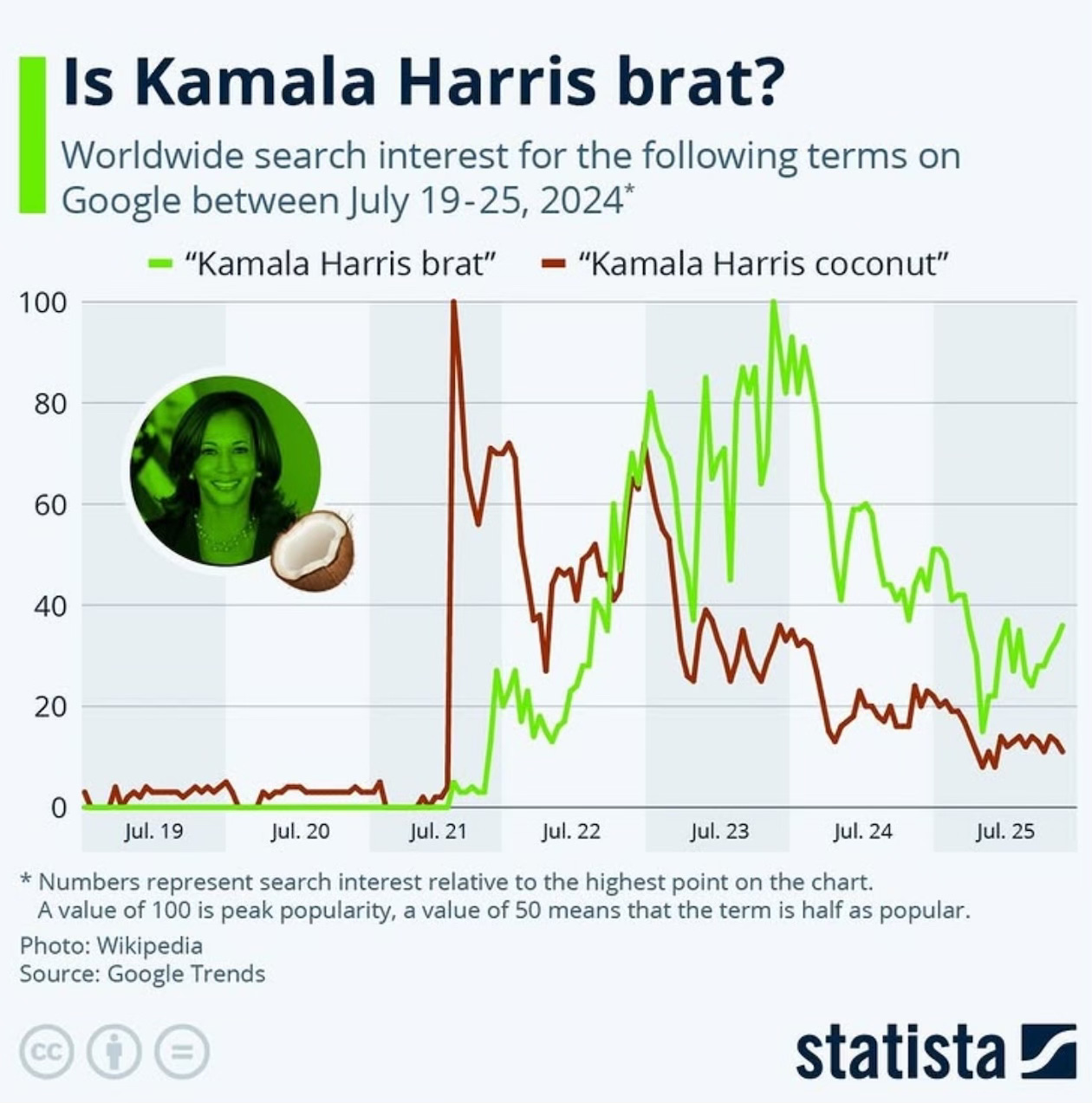Does data matter in the age of vibes?
Do vibes rule everything around us now? If so, can we measure them?
Last week, the National Science Foundation (NSF) terminated hundreds of government research grants, including those earmarked for studying misinformation and disinformation. This news is unsurprising given the Trump administration’s all-out assault on the federal government generally and science specifically, but unnerving just the same.
It’s also more evidence that the shift from facts to vibes, which has been underway since at least the first Trump administration, continues.
The media and academia have long been telling us we live in a “post-truth world.” A Guardian headline from December reads: “‘It’s game over for facts’: how vibes came to rule everything from pop to politics.” Author Jess Cartner-Morley writes,
For 250 years, in the public sphere, emotion was considered secondary to rational thinking. The accepted wisdom of the civilised world was that facts trumped feelings.

What even are vibes?
Are vibes just a rebrand of intuition? A new way of saying, “We have a gut feeling”?
“In a broad sense, a ‘vibe’ is something akin to a mood, atmosphere or energy,” writes Ash Watson, “But this is an imperfect definition. Often, we’ll use this term to describe something we feel powerfully, but find hard to articulate.”
Vibes feel true and are felt collectively, but they’re a twenty-first-century phenomenon that cultural commentators have trouble describing. (Maybe vibes are not completely new. Watson says the Ancient Greeks had a concept somewhat analogous to vibes: quintessence.)
Blazing Eye Sees All1, a new book by investigative journalist Leah Sottile, explores the “new” New Age movement in America and the proliferation of conspirituality that began in the early days of the COVID-19 pandemic.
“People speak in the language of energy and vibes,” Sottile explains. “Good energy, bad energy, positive energy, energetic vibrations, negative energy.”
Brat summer and American politics
On June 7, 2024, British pop singer Charli XCX released her sixth album, brat. It’s 41 minutes in length and the cover art is simple, with black letters on a slime-green background. The record became an instant sensation. Brat summer ensued, but—like vibes—it evaded a precise definition.
“Of all this year’s hit albums, the one that had a vibe named after it – Brat – won the culture, catapulting Charli XCX to seven Grammy nominations,” wrote Cartner-Morley.
“On one level, the album is the sonic equivalent of a grimy, sweaty dance floor. It is all deep beats and manic energy. But, as many critics have noted, all of this feral party-girl energy is laced with a vaguely unsettling dose of millennial anxiety,” wrote Meg Walters in Glamour. “Brat may be laced with a touch of existential dread, but hey, aren't we all? Brat summer just makes sense.”
On June 27, 2024, President Joe Biden participated in the disastrous debate that effectively ended his candidacy for a second term.
On July 13, right in the thick of Brat summer, Donald Trump held a rally in Butler, Pennsylvania. Due to a variety of security failures, a gunman managed to take a shot at Trump with an AR-15-style rifle. Trump sustained just a minor injury to his ear.
The combination of Biden’s terrible debate performance and Trump’s post-assassination-attempt popularity boost created a vibe shift in the 2024 presidential election. Vice President Kamala Harris became the new Democratic nominee on July 21, and the vibes shifted again, aligning with her cause for a time. She went from Auntie Coconut to brat in mid-July. Statista posted the chart below showing the increasing search interest for “Kamala Harris brat” to Instagram on July 26.
On September 24, Marcus Collins wrote in Forbes,
The vibes will determine whether former President Donald Trump or Vice President Kamala Harris will take office in 2025. It won't be policies that will sway voters at the ballot box but the candidate's ability to connect on an emotional level.
But can we measure vibes?
The loss of interest in facts discourages me as a data practitioner and as a human. My work—assuming I continue to have work—may lose value and feel less meaningful if clients value vibes more than facts. (I guess I could stop expecting my work to feel meaningful and go enjoy some nature vibes with my dog.)
Maybe we data people should try to measure vibes more specifically. Sentiment analysis seems like a reasonable place to start, but traditional methods like polling alone won’t capture the full picture. This is a task for creatively-minded data practitioners willing to try new methods and search for new perspectives.
I’d love to know what you think. Share in the comments or send me a message.
10/10 highly recommend. The book is compelling, informative, and entertaining.



Thank you for writing - I didn't have very organized thoughts about what is taking the place of facts in the zeitgeist, this helps. Regarding, "Are vibes just a rebrand of intuition?", my first thought was yes, sort of, but it is mob-scoped intuition, and mob-scoped anything has a tendency to go off-kilter.